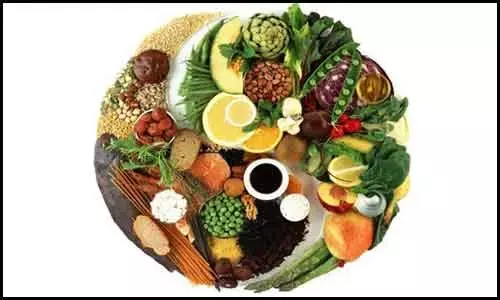- Home
- Medical news & Guidelines
- Anesthesiology
- Cardiology and CTVS
- Critical Care
- Dentistry
- Dermatology
- Diabetes and Endocrinology
- ENT
- Gastroenterology
- Medicine
- Nephrology
- Neurology
- Obstretics-Gynaecology
- Oncology
- Ophthalmology
- Orthopaedics
- Pediatrics-Neonatology
- Psychiatry
- Pulmonology
- Radiology
- Surgery
- Urology
- Laboratory Medicine
- Diet
- Nursing
- Paramedical
- Physiotherapy
- Health news
- Fact Check
- Bone Health Fact Check
- Brain Health Fact Check
- Cancer Related Fact Check
- Child Care Fact Check
- Dental and oral health fact check
- Diabetes and metabolic health fact check
- Diet and Nutrition Fact Check
- Eye and ENT Care Fact Check
- Fitness fact check
- Gut health fact check
- Heart health fact check
- Kidney health fact check
- Medical education fact check
- Men's health fact check
- Respiratory fact check
- Skin and hair care fact check
- Vaccine and Immunization fact check
- Women's health fact check
- AYUSH
- State News
- Andaman and Nicobar Islands
- Andhra Pradesh
- Arunachal Pradesh
- Assam
- Bihar
- Chandigarh
- Chattisgarh
- Dadra and Nagar Haveli
- Daman and Diu
- Delhi
- Goa
- Gujarat
- Haryana
- Himachal Pradesh
- Jammu & Kashmir
- Jharkhand
- Karnataka
- Kerala
- Ladakh
- Lakshadweep
- Madhya Pradesh
- Maharashtra
- Manipur
- Meghalaya
- Mizoram
- Nagaland
- Odisha
- Puducherry
- Punjab
- Rajasthan
- Sikkim
- Tamil Nadu
- Telangana
- Tripura
- Uttar Pradesh
- Uttrakhand
- West Bengal
- Medical Education
- Industry
Flavanol-rich foods and drinks tied to meaningful reduction of blood pressure

Researchers have found in a new study that consumption of Flavanol-rich foods and drinks is tied to meaningful reduction of blood pressure.
People who consume flavanol-rich diet including tea, apples and berries may have lower blood pressure, according to the first study using objective measures of thousands of UK residents' diet.
The findingsof study have been published in Scientific Reports.
The findings studied the diet of more than 25,000 people in Norfolk, UK and compared what they ate with their blood pressure. In contrast to most other studies investigating links between nutrition and health, the researchers did not rely on study participants reporting their diet, but instead measured flavanol intake objectively using nutritional biomarkers - indicators of dietary intake, metabolism or nutritional status that are present in our blood.
The difference in blood pressure between those with the lowest 10% of flavanol intake and those with the highest 10% of intake was between 2 and 4 mmHg. This is comparable to meaningful changes in blood pressure observed in those following a Mediterranean diet or Dietary Approaches to Stop Hypertension (DASH) diet. Notably, the effect was more pronounced in participants with hypertension.
Professor Gunter Kuhnle, a nutritionist at the University of Reading who led the study said:
"Previous studies of large populations have always relied on self-reported data to draw conclusions, but this is the first epidemiological study of this scale to objectively investigate the association between a specific bioactive compound and health. We are delighted to see that in our study, there was also a meaningful and significant association between flavanol consumption and lower blood pressure.
"What this study gives us is an objective finding about the association between flavanols - found in tea and some fruits - and blood pressure. This research confirms the results from previous dietary intervention studies and shows that the same results can be achieved with a habitual diet rich in flavanols. In the British diet, the main sources are tea, cocoa, apples and berries.
"The methodology of the study is of equal importance. This is one of the largest ever studies to use nutritional biomarkers to investigate bioactive compounds. Using nutritional biomarkers to estimate intake of bioactive food compounds has long been seen as the gold standard for research, as it allows intake to be measured objectively. The development, validation and application of the biomarker was only possible because of the long-term commitment of all collaborators. In contrast to self-reported dietary data, nutritional biomarkers can address the huge variability in food composition. We can therefore confidently attribute the associations we observed to flavanol intake."
An international team from the University of Reading, Cambridge University, the University of California Davis, and Mars, Incorporated studied 25,618 participants from the European Prospective Investigation into Cancer (EPIC) Norfolk study and found that the biggest difference was observed in participants with the highest blood pressure. This suggests if the general public increased its flavanol intake, there could be an overall reduction in cardiovascular disease incidence.
Hagen Schroeter, Chief Science Officer at Mars Edge, said:
"This study adds key insights to a growing body of evidence supporting the benefits of dietary flavanols in health and nutrition. But, perhaps even more exciting was the opportunity to apply objective biomarkers of flavanol intake at a large scale. This enabled the team to avoid the significant limitations that come with past approaches which rely on estimating intake based on self-reported food consumption data and the shortcomings of current food composition databases."
Hina Zahid Joined Medical Dialogue in 2017 with a passion to work as a Reporter. She coordinates with various national and international journals and association and covers all the stories related to Medical guidelines, Medical Journals, rare medical surgeries as well as all the updates in the medical field. Email: editorial@medicaldialogues.in. Contact no. 011-43720751
Dr Kamal Kant Kohli-MBBS, DTCD- a chest specialist with more than 30 years of practice and a flair for writing clinical articles, Dr Kamal Kant Kohli joined Medical Dialogues as a Chief Editor of Medical News. Besides writing articles, as an editor, he proofreads and verifies all the medical content published on Medical Dialogues including those coming from journals, studies,medical conferences,guidelines etc. Email: drkohli@medicaldialogues.in. Contact no. 011-43720751


